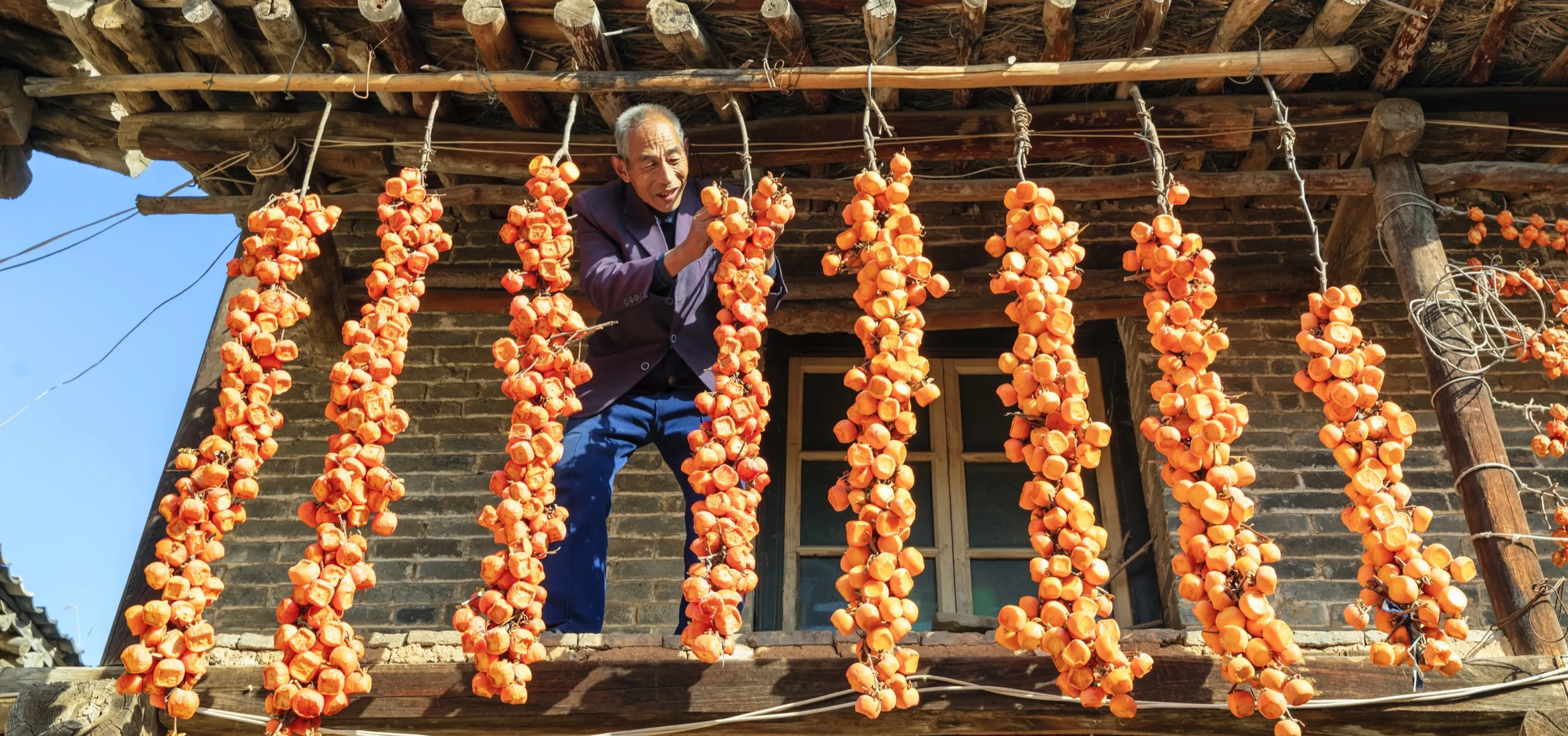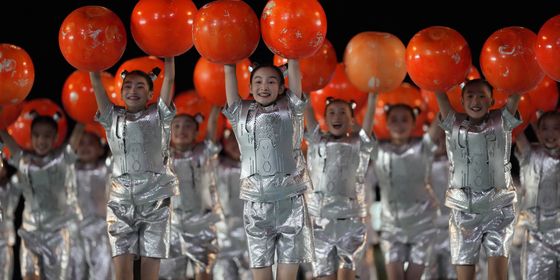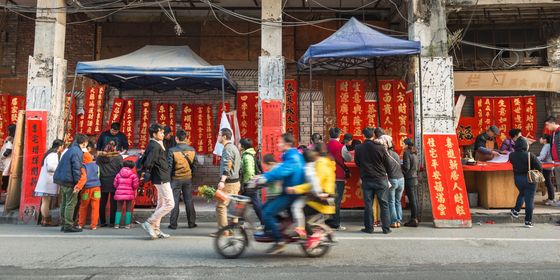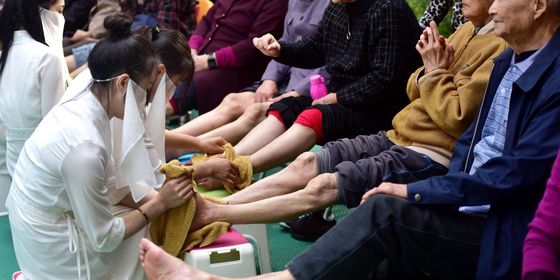Busting ghosts, dyeing cloth, or making frozen treats—Chinese persimmon is a fruit of many uses
Like miniature orange lanterns hanging from trees, persimmon lights up this gloomy autumn season. Since its Chinese character, 柿 (shì) is pronounced the same as 事, the character for “things“ or “matters,“ this bright fruit conveys the wish of things going well. Traditionally, people plant persimmon trees in front of homes and eat the fruit during the wedding. The classic painting Picture of the New Year with Auspicious Signs (《岁朝佳兆图》), by the Ming emperor Zhu Jianshen (朱见深) in 1481, also shows the legendary ghostbuster Zhong Kui (钟馗) walking with a little ghost holding a plate of persimmons, conveying the idea that the fruit could help chase away evil spirits and bring peace and prosperity.
Allegedly, the persimmons even saved the life of Zhu Jianshen‘s ancestor Zhu Yuanzhang (朱元璋), before he became the founding emperor of the Ming dynasty (1368 – 1644). Zhu Yuanzhang was born a poor peasant, and one day, cold and starving, he passed a village and saw a giant persimmons tree with fruits in frost. He treated himself to a persimmon feast. In 1355, when Zhu, now the emperor, stumbled upon this village, he saw this tree again. He took off his red robe and wrapped it around the tree, awarding it the title “Duke of Frost” (凌霜侯).
Fall is the traditional season for enjoying persimmon, especially the solar term of Frost Fall (霜降), which typically falls on October 23 and marks the transition from autumn to winter. Persimmons ripen best around this time, becoming thin-skinned, thick-fleshed, juicy, and sweet.
A classic way to enjoy persimmons in northern China, especially the Northeast, is to bite a whole through the skin and suck out juice from inside. As persimmons get frozen in the cold weather, it tastes even more refreshing. As the 20th century writer Lao She (老舍) describes in his novel Rickshaw Boy (《骆驼祥子》), the title character Xiangzi “bought a frozen persimmon, and when he took a bite, his mouth was full of ice! It was so cold that it slowly cooled from his mouth to his chest, sending a shiver down his body. He finished it in a few bites, his tongue a little numb and his heart cozy.” Despite Xiangzi’s hard life as a rickshaw driver, the frozen persimmons gave him a moment of sweet, cold pleasure.













